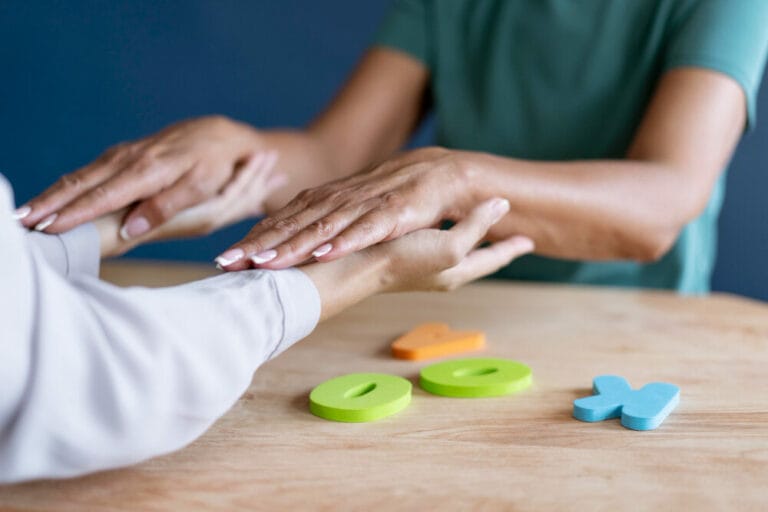Is Economics Impacting Your Happiness and Wellbeing Or The Other Way Around?

Many people think that economics is the study of money and business. However, economics can also be used to understand how our emotions and thoughts affect our happiness and wellbeing. When you look into your heart and see what you are thinking and feeling, you can see which decisions will make you happy and which will make you unhappy.
The way we think and feel has a lot to do with our overall happiness and wellbeing. We often look to the outside world for validation, but sometimes it’s more important to look within ourselves for answers. When we understand our thoughts and feelings, we can make better decisions that will increase our happiness and wellbeing.
More and more people become aware of how our thoughts and emotions are affecting us. Paying attention to your financial situation can help improve your happiness and wellbeing. When you are mindful of both your mental and financial well-being, you can create a more balanced life.
Economics has always been a part of our lives. It is what drives the prices of goods and services, and it is the reason people work to earn money. But what happens when you look deeper into your heart and see what you are really thinking and feeling? This is the question that psychologist Shawn Achor takes on in his new book “The Happiness Advantage.”
Harvard lecturer Shawn Achor shares seven core principles of positive psychology that each one of us can use to improve our performance, grow our careers, and gain a competitive edge at work. After conducting the largest study on this topic, he reveals that success doesn’t make you happy, but happiness fuels success and performance, not the other way around. When you are happy, you are more positive and more engaged, creative, resilient to stress, and productive.
Anchor believes that by understanding your emotions and thinking more about your well-being, you can achieve greater happiness and fulfilment in your life.
In this article, we will explore how looking into your happiness and wellbeing can help you achieve your financial dreams and goals in life.

What is the report of happiness 2022 telling us about our future happiness and wellbeing
What is your heart telling you about your happiness and the feelings behind it all
The heart is said to be the center of love, compassion, and many other emotions. What do you see when you look into your heart? In this article, we will explore the role of economics in your happiness and wellbeing and what happens when we look into your heart.
When we look into our hearts, we may see different emotions such as love, compassion, happiness, sadness, and anger. We may also see qualities such as courage, bravery, and wisdom. What we see in our hearts is a reflection of who we are as individuals.
When we look into our hearts, we may also see what we want or need. We may see that we are looking for love, acceptance, and security. We may also see that we are searching for a sense of purpose in life.
What happens when we look into our hearts is a reflection of who we are as individuals. It is important to remember that when you are confused you need to listen to your heart. What we see in our hearts is based on our own thoughts and feelings, and that is where you have to start looking for solutions.
There is an increasing interest in happiness and its relationship to our future. A recent report by the World Happiness Report has found that countries with high levels of happiness are also those that are doing well economically.
The report surveyed over 156 countries, and found that while there is no single cause for happiness, there are several key factors that contribute to a happy life. These include having a good job, being safe and comfortable, having good friends and family, and being able to do what you love.
The report also found that while happiness does not always change over time, it does tend to change dramatically from one country to another. For example, Denmark is currently ranked as the happiest country in the world, while Haiti is the least happy.
While the report does not provide any specific predictions about the future, it does suggest that countries with high levels of happiness are likely to be successful in the future. This suggests that there is something we can all do to increase our happiness levels – whether we live in a poor or rich country.

What are some things to look out for when it comes to our hearts?
When looking in to our hearts, we can see that there are many things happening. Some of these things can be good, while others might not be so good. Here are a few things to look out for:
1. Our heart may be filled with love, joy, and happiness. This is a good thing!
2. However, our heart may also be full of sadness, anger, and frustration. This too is normal, and it’s ok to feel these emotions.
3. Our heart may also be full of fear, doubt, and insecurity. Again, this is normal and it’s ok to have these feelings. Just remember to take care of yourself emotionally as well as physically.
4. Our heart may also be full of hatred, rage, and violence. This too is normal and it’s ok to feel this way occasionally. Just know that it’s not healthy to live in this kind of darkness all the time.
5. Finally, our heart may also be full of love, compassion, and forgiveness. This is the best thing that can happen! Love heals us both emotionally and spiritually.
Just remember that our heart is a very important part of our overall well-being, and it’s important to take care of it.
Are intentional living and self leadership increasing happiness and wellbeing?
Self leadership is a term often used in the business world, but what does it mean for individuals? According to Forbes, self leadership means “taking charge of our own lives and careers by being proactive, setting goals and making decisions ourselves, rather than waiting for someone else to make them for us.” This may seem like a difficult task, but it’s one that’s essential if we want to achieve our goals. If we wait for someone else to take care of everything, we may never get the opportunity to achieve our full potential. Instead of relying on others, it’s important that we take charge of our own lives and become self-leaders. Here are three ways you can start becoming a self-leader:
1. Set realistic goals. Don’t try to accomplish too much at once; instead, start with the easiest thing you love doing, break your goals down into smaller, more manageable steps. This will help you stay focused and motivated throughout the process.
2. Be proactive. Don’t wait for things to happen; take action yourself and go out there and make things happen. This will help you build confidence and trustworthiness skills, which will be key in any career or business venture.
3. Be patient and persistent. It takes time and effort to become a self-leader, but the rewards are worth it. By following these tips, you’ll be on your way to becoming a successful individual!
4. Join a community of positive people who can support your goals and help you increase your happiness and wellbeing through daily positive interactions and group projects.
The role of self leadership is essential in any career or business venture. By taking charge of our own lives and careers, we can build confidence and trustworthiness skills that will be key in any endeavor.
If you’re interested in learning more about self leadership, join the Self- leadership Summit 2.0 we are running every year.

How the economic affairs impact your wellbeing
When you look at the world, what do you see happening? The economy may be one of the most visible and important aspects of our lives, but what does it really mean for us as individuals? According to experts, our wellbeing is heavily influenced by our economic affairs. In this blog section, we’ll explore what exactly economists say about the link between money and happiness.
Economists agree that money can’t buy happiness
There is no doubt that money can buy a lot of things- from food to shelter. But according to economists, it doesn’t always bring people happiness. In fact, research has consistently shown that money can’t buy happiness. One study found that people who earn more than £60,000 a year are no happier than those who earn less than £15,000 a year. Researchers suspect this is because wealthier people often have more material possessions and don’t need as much happiness in their lives.
Interestingly, this isn’t just a problem for rich people. A study in the UK found that people who earned less than £15,000 a year were just as unhappy as those who earned more than £60,000 a year. It seems that wealth isn’t the only thing that makes people happy.
Money can’t buy happiness, but it can give you the freedom to do the things that make you happy. If happiness is what we all want, why is that so many people are a lot unhappier today then they were a year ago?
Economists believe that, overall, people are happier when they have more money. In fact, research has shown that having more money can improve people’s health, help them afford food and shelter, and even make them happier.
This means that if you’re struggling financially, don’t despair. It is possible to improve your wellbeing by earning more money. However, it’s important to keep in mind that money alone isn’t enough- you also need to have other things such as inner peace, health, and security in your life.
Conclusion
When you look into your heart, what do you see? If you are like most people, you likely see love and happiness. That is because when we focus on the good in our life, we tend to attract more of that goodness into our lives. The same is true for our hearts — when we focus on loving ourselves and accepting others for who they are, positive change starts to happen. When we let go of anger, bitterness and other negative emotions, a space opens up inside us that can be filled by love and joy instead.





